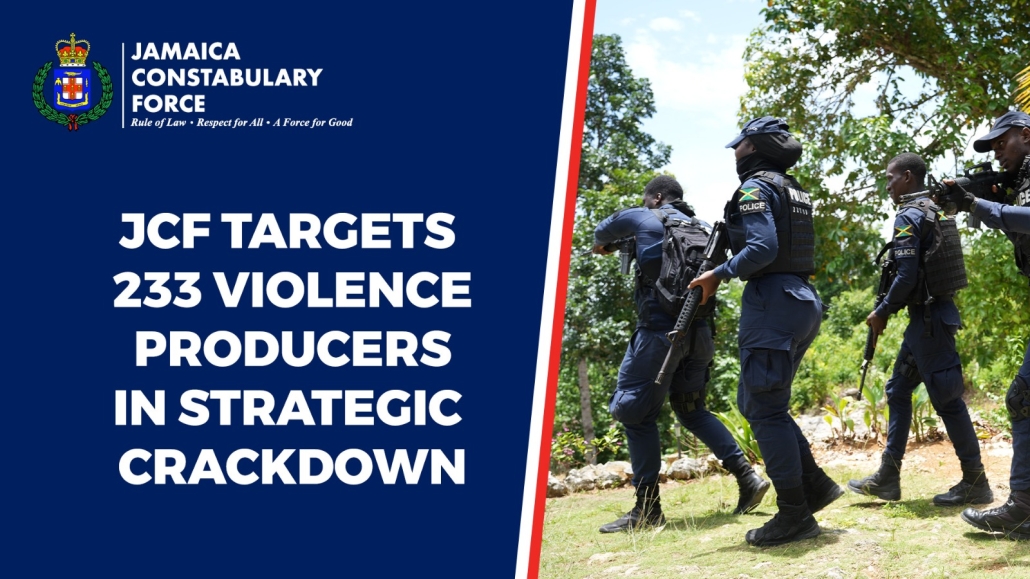
In a bid to stem Jamaica’s tide of violence, Acting Deputy Commissioner of Police Warren Clarke revealed that the Jamaica Constabulary Force (JCF) has identified 233 individuals as key violence producers. Speaking at the annual Specialized Operations Branch Conference under the theme “Celebrating Excellence for a Force for Good,” Clarke outlined a targeted approach aimed at apprehending prolific offenders and dismantling the networks fuelling Jamaica’s staggering murder rate.
“We have categorised those that we believe are very prolific. We call those strategic targets, and those targets ought to be pursued from here [Specialized Operations],” Clarke explained. He further noted that additional targets fall under the purview of area-specific Fugitive Apprehension Teams (AFATs) and local Operational Support Teams (OSTs). This multi-tiered approach is designed to maximise operational efficiency and address the core drivers of violent crime across the country.
A National Crisis of Violence
Jamaica’s murder rate, which Clarke described as “singularly crippling” to the nation, remains one of the highest in the region. To underscore the gravity of the situation, Clarke highlighted that nearly 1,100 people have been killed this year alone, a figure that rivals death tolls in conflict zones. “Not even people who are at war are killing people as efficiently as we are,” he stated. Clarke lamented the devastating impact of these losses, noting that the violence has robbed the nation of untapped potential and intellectual capital. “Of those 1,100 people who died this year, have we ever considered the intellect that has been lost?” he questioned.
The repercussions of violence extend beyond personal tragedies to Jamaica’s economic stability. Clarke warned that crime is driving away foreign investment and stifling growth. “Crime diverts foreign exchange from Jamaica. All those foreign investment opportunities and business people, they stay away because of the violence problem too,” he said. This vicious cycle of violence and economic stagnation, he noted, threatens the very survival of the country.
Ambitious Goals for 2025
Despite these challenges, the JCF is resolute in its commitment to reducing the murder rate. Clarke outlined a bold goal of achieving fewer than 1,000 murders annually, dubbing the current year as a “rehearsal” for the larger challenge ahead. “We tried it this year to have a sub-1,000 year, and it was a good rehearsal,” he said. He acknowledged the late start in this year’s efforts but expressed optimism for next year’s campaign, which he believes is critical to the nation’s future. “None of those nice things we talk about—making Jamaica the place to do business and raise families—will happen unless we deal with violence,” Clarke stressed. Jamaica has not registered below 1000 murders for the year since 2003 when we recorded 973.
In closing, Acting DCP Clarke issued a rallying call to the members of Specialized Operations, urging them to remain focused on their mission and its alignment with the JCF’s broader goals. “Keep focused on our overall mission of specialized operations and how this integrates or has strategic fit with the mission of the force and country overall,” he said. He underscored the critical role law enforcement plays in ensuring Jamaica’s survival and future prosperity.
As the JCF intensifies its efforts, Mr Clarke’s words resonate as a stark reminder of the urgent need for collective action to confront the scourge of violence and restore Jamaica’s reputation as a place to live, work, raise families and do business.







